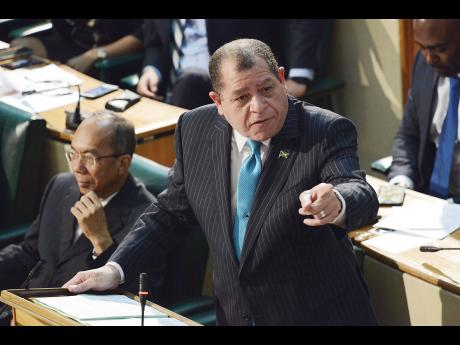Tax on group health insurance not onerous, says Shaw
Despite objections by some players in the insurance industry to the Government's imposition of general consumption tax (GCT) on group health insurance, Finance and the Public Service Minister Audley Shaw yesterday defended the measure, suggesting that the tax would not be burdensome on either employers or employees.
According to Shaw, the premium and GCT paid by the company would be treated as a deductible expense in order to arrive at the income tax liability of the firm.
The finance minister further explained that "those companies that are tax compliant can reduce their income tax liability in the range of 25 per cent to 33 per cent of the premiums for the group health insurance. Those companies that are not tax compliant and don't file company income tax returns will bear the full impact of the GCT on group health premiums."
MODEST INCREASE
Shaw told his parliamentary colleagues that where an employee makes a contribution, the amount would be moderate. "For example, if the premium is $5,000 per month and the employee pays 20 per cent of that (which appears to be the most common practice), that employee would pay a modest $165 more per month," he said during his closing 2017-2018 Budget Debate presentation.
"When you contrast this to the additional take-home from the $1.5 million give-back, that could be as much as $18,000. Any reasonable person would conclude that this amount is very modest."
Commenting on the proposed increases in property taxes as a result of the new valuations, Shaw said that where a property owner believed that the valuation of his land was too high, an objection could be lodged with the commissioner of land valuations within 60 days of service of notice.
For agricultural lands, he said that farmers could apply for agricultural de-rating relief for up to 50 per cent of the annual tax.
"Where you are experiencing hardship, you may apply for special discretionary relief through any of the municipal corporations," Shaw said.

